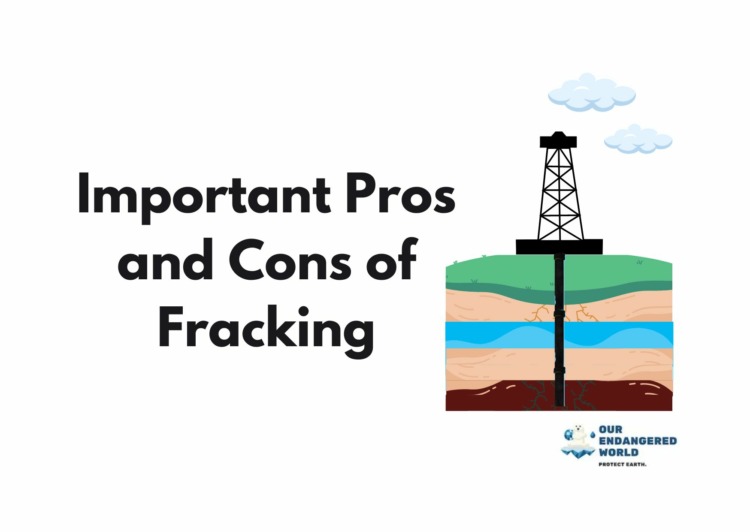Benefits of Fracking
Fracking, also known as hydraulic fracturing, is a technique used to extract natural gas and oil from deep underground. Despite the controversy surrounding it, fracking offers several significant benefits that contribute to energy independence, economic growth, and environmental sustainability. In this article, we will delve into the various advantages of fracking and explore its impact on different sectors.
Enhanced Energy Production
Fracking has revolutionized the energy industry by unlocking vast reserves of previously inaccessible natural gas and oil. This technique involves injecting a high-pressure fluid mixture into rock formations, creating fractures that allow the extraction of trapped resources. As a result, fracking has significantly increased energy production, reducing reliance on imports and enhancing energy security.
Economic Growth and Job Creation
The economic benefits of fracking cannot be understated. The extraction of natural gas and oil through fracking has stimulated economic growth in regions with abundant reserves. It has created a multitude of job opportunities, both directly in the energy sector and indirectly in supporting industries such as transportation, manufacturing, and services. Additionally, fracking has led to increased tax revenues for local governments, which can be invested in public infrastructure, education, and healthcare.
Reduced Energy Costs
One of the major advantages of fracking is its impact on energy costs. The increased supply of natural gas obtained through fracking has resulted in lower energy prices, benefiting both consumers and businesses. This reduction in energy costs has a positive ripple effect on various sectors of the economy, improving affordability and competitiveness.
Environmental Considerations
While concerns about the environmental impact of fracking exist, it is important to acknowledge the industry’s efforts to mitigate these effects. Stringent regulations and technological advancements have significantly reduced the potential risks associated with fracking. For instance, the use of advanced design and monitoring techniques helps prevent groundwater contamination. Furthermore, the industry is actively working towards minimizing methane emissions, a potent greenhouse gas.
Energy Transition and Bridge Fuel
Fracking plays a crucial role in the transition towards cleaner energy sources. Natural gas obtained through fracking serves as a bridge fuel, providing a more environmentally friendly alternative to coal and oil. As renewable energy technologies continue to advance, natural gas can complement intermittent renewable sources, ensuring a reliable and stable energy supply. Fracking enables a gradual shift towards a greener future by reducing carbon emissions and facilitating the integration of renewables into the energy mix.

Fracking offers numerous benefits that contribute to energy independence, economic growth, and environmental sustainability. Through enhanced energy production, job creation, reduced energy costs, and its role as a bridge fuel, fracking has become an integral part of the global energy landscape. While it is essential to address and mitigate environmental concerns, the responsible and regulated use of fracking can pave the way for a balanced and diversified energy future.
Frequently Asked Questions about the Benefits of Fracking
1. What is fracking?
Fracking, short for hydraulic fracturing, is a method used to extract natural gas and oil from deep underground by injecting a mixture of water, sand, and chemicals into rock formations at high pressure.
2. How does fracking benefit the economy?
Fracking stimulates economic growth by creating jobs, increasing tax revenues, and reducing energy costs. It has been instrumental in boosting local economies and supporting various industries.
3. Does fracking help reduce energy prices?
Yes, fracking has contributed to lower energy prices by unlocking vast reserves of natural gas and oil. This increased supply has led to more competition and reduced reliance on energy imports.
4. What are the environmental benefits of fracking?
Fracking helps reduce greenhouse gas emissions by replacing coal with cleaner-burning natural gas. It also enables the transition to renewable energy sources by providing a bridge fuel that can support the intermittent nature of renewables.
5. Does fracking contaminate drinking water?
Extensive research and regulatory measures are in place to ensure that fracking does not contaminate drinking water. Proper well construction, monitoring, and wastewater management techniques are used to protect water sources.
6. Can fracking cause earthquakes?
Fracking itself does not cause significant earthquakes. However, the disposal of wastewater from fracking operations into underground injection wells can induce seismic activity in rare cases.
7. Are there health risks associated with fracking?
Studies have shown that fracking can pose health risks due to air and water pollution, as well as exposure to toxic chemicals. However, strict regulations and improved industry practices aim to mitigate these risks.
8. Does fracking benefit local communities?
Fracking can bring economic benefits to local communities through job creation, increased tax revenue, and investments in infrastructure and services. These benefits can help improve the quality of life for residents.
9. How does fracking contribute to energy independence?
By unlocking vast domestic reserves of natural gas and oil, fracking reduces dependence on foreign energy sources. This enhances energy security and strengthens a country’s ability to meet its own energy needs.
10. Are there any technological advancements in fracking?
Yes, technological advancements have improved the efficiency and safety of fracking operations. Innovations such as horizontal drilling and the use of recycled water have made the process more effective and environmentally friendly.




